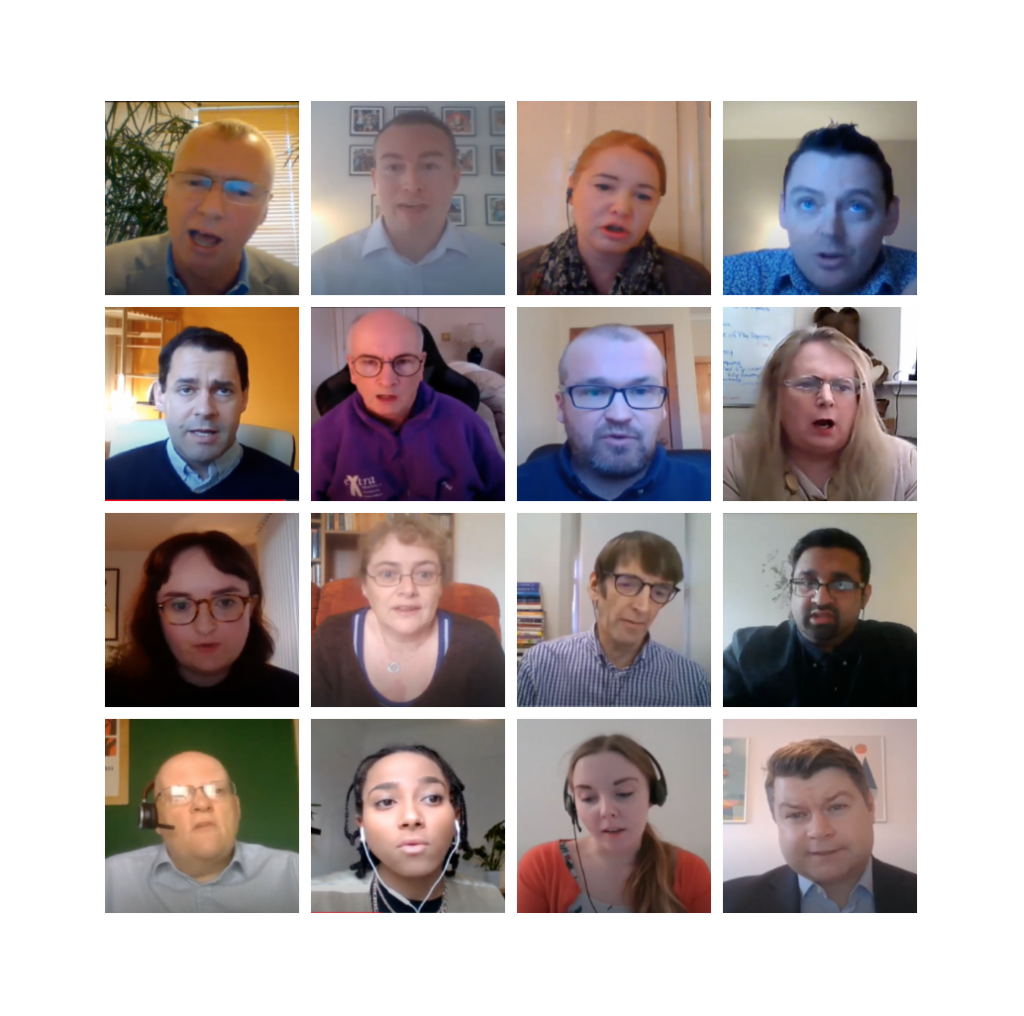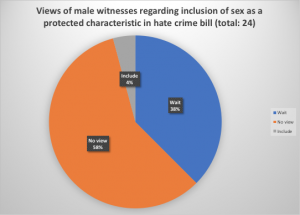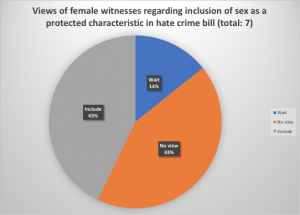Women and the Hate Crime Bill: Nothing about us without us
On Tuesday 24th November For Women Scotland will give evidence to the Scottish Parliament’s Justice Committee on the controversial Hate Crime and Public Order Bill.
In our written submission, we made clear our objection to Part 2 of the bill, which seeks to extend the offence of stirring up hatred, but also our objection to the non-inclusion of ‘sex’ as a protected characteristic.
There have already been three oral evidence sessions and we have been closely monitoring the discussions.
Across the three sessions, there have been a total of 32 witnesses, two thirds of whom were men. The Committee, of course, has limited control over the make-up of the panels, but we note that, once again, women have been outnumbered in discussions about an important aspect of law reform that will impact them.
We also remarked on the differing views of male and female witnesses regarding the inclusion of ‘sex’ as a protected characteristic. Most of the male witnesses were either neutral on this question or stated that they would be happy to wait for the Scottish Government’s proposed working group to decide whether or not to include ‘sex’. Just one male witness expressed support for adding ‘sex’ to the list of aggravators in the bill.
We were struck by the absolute certainty of one male witness, Kevin Kane from Youthlink Scotland, who seemed to know what was best:
“We certainly would not want to rush in with an aggravator that is designed to protect women… We are nailing our colours firmly to the misogynistic harassment working group mast.”
Amongst the seven female witnesses, on the other hand, four offered a view. Three of these supported the inclusion of ‘sex’ as a protected characteristic, and one favoured waiting for the decision of the working group. Three others offered no view.
Of course, many witnesses had been invited to give evidence on the basis of their expertise about a particular element of the bill, so may not have been expected to consider the issue of the sex aggravator. But, for those that expressed a view, the difference between the male and female witnesses told its own story.
After Tuesday’s panel, the Cabinet Secretary for Justice will return to give evidence. There remain many unanswered questions. For instance, in his evidence to the Committee on 27 October, he stated:
“There is a range of reasons—and, as I said, there is a whole report on those—why a number of national organisations do not want a sex or gender aggravator to be introduced. I decided to meet some organisations that represent and work with women at the coalface at a local level. Again, we can provide details of those organisations. We met on a couple of occasions, and it is fair to say that the views of a number of them—not all of them— align with the view of Engender and those other organisations.”
His officials have failed to provide details of which “coalface” organisations he met with via a freedom of information response, but perhaps an answer will be forthcoming during his evidence session. We also learned from the weekend papers that he intends to announce the chair of the Government’s proposed working group, which would suggest that the Government has no intention of amending the bill to include ‘sex’ as a protected characteristic before it is passed.
Launching the draft bill in April, Mr Yousaf stated that the bill would “send a strong message to victims, perpetrators, communities and to wider society that offences motivated by prejudice will be treated seriously and will not be tolerated”. That he is content to delay consideration of whether to extend hate crime laws to women sends a pretty stark message to 51% of the Scottish population.
The witnesses’ comments on whether ‘sex’ should be added to the Hate Crime Bill are collated in this pdf.




